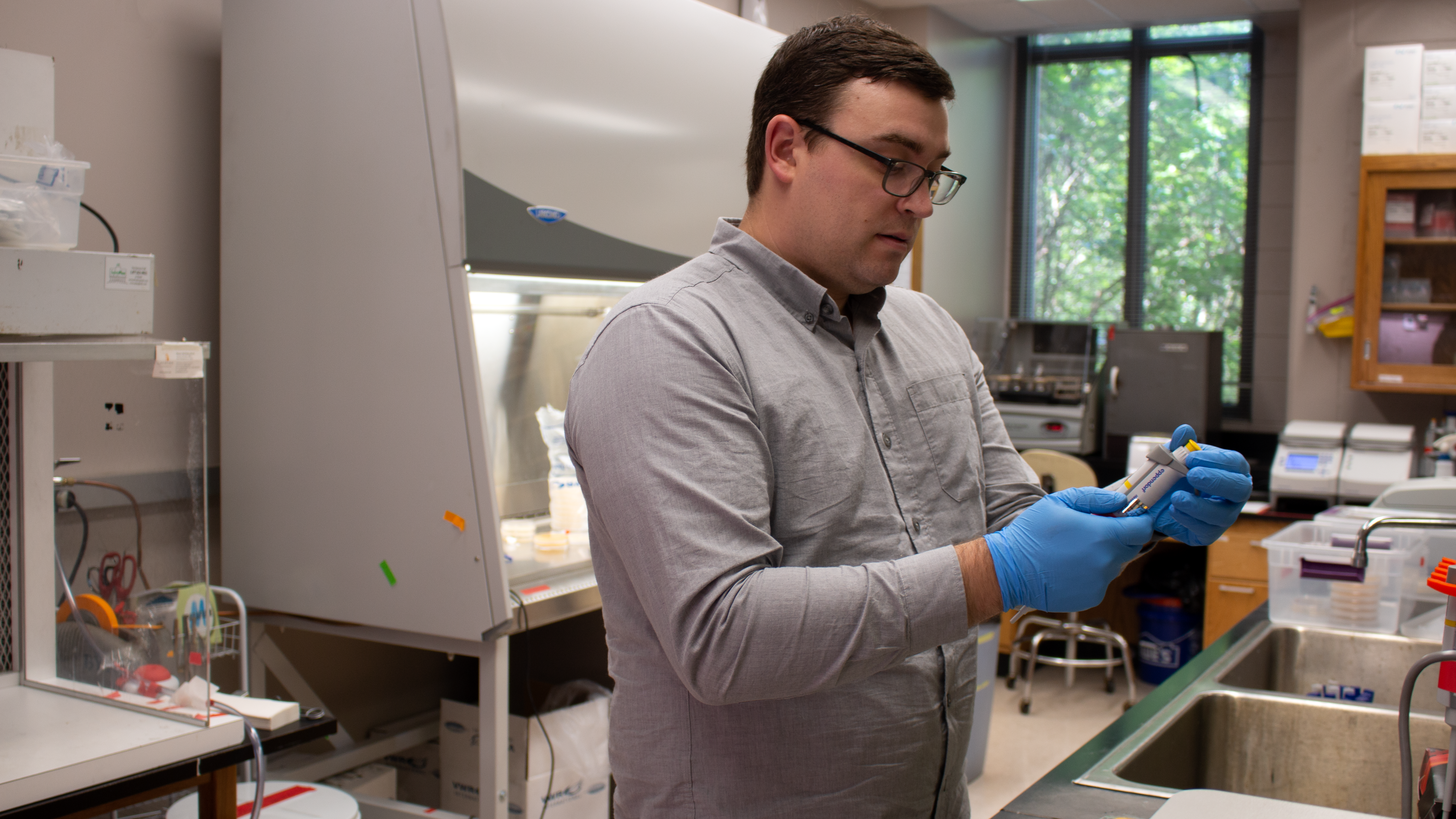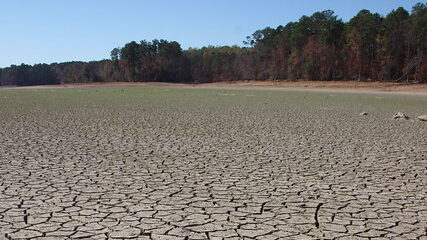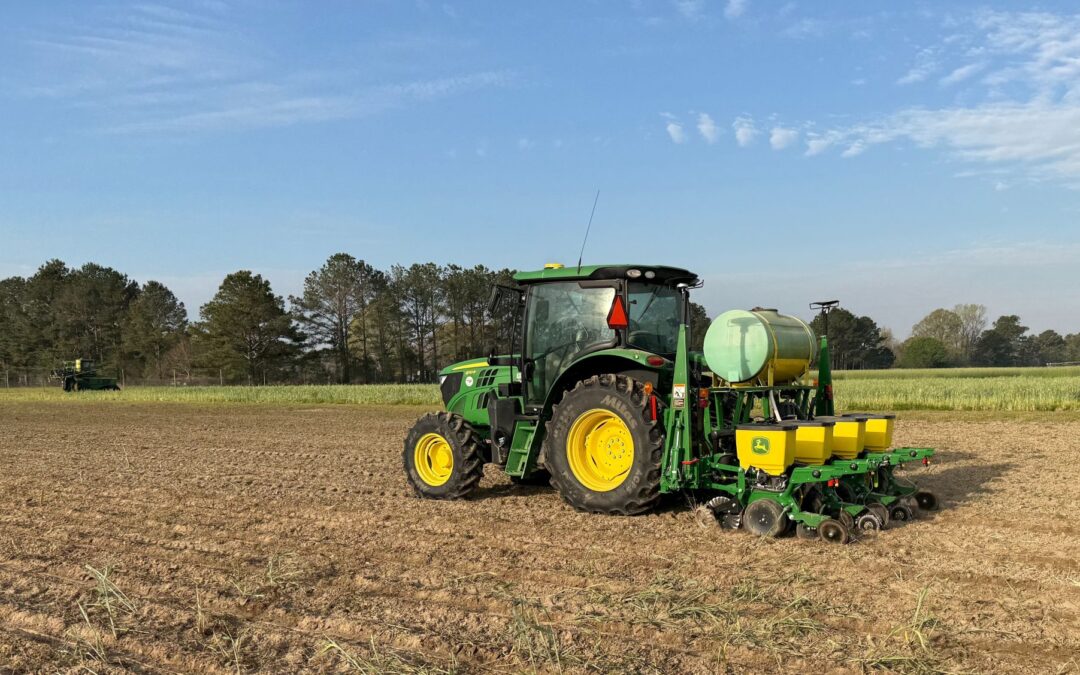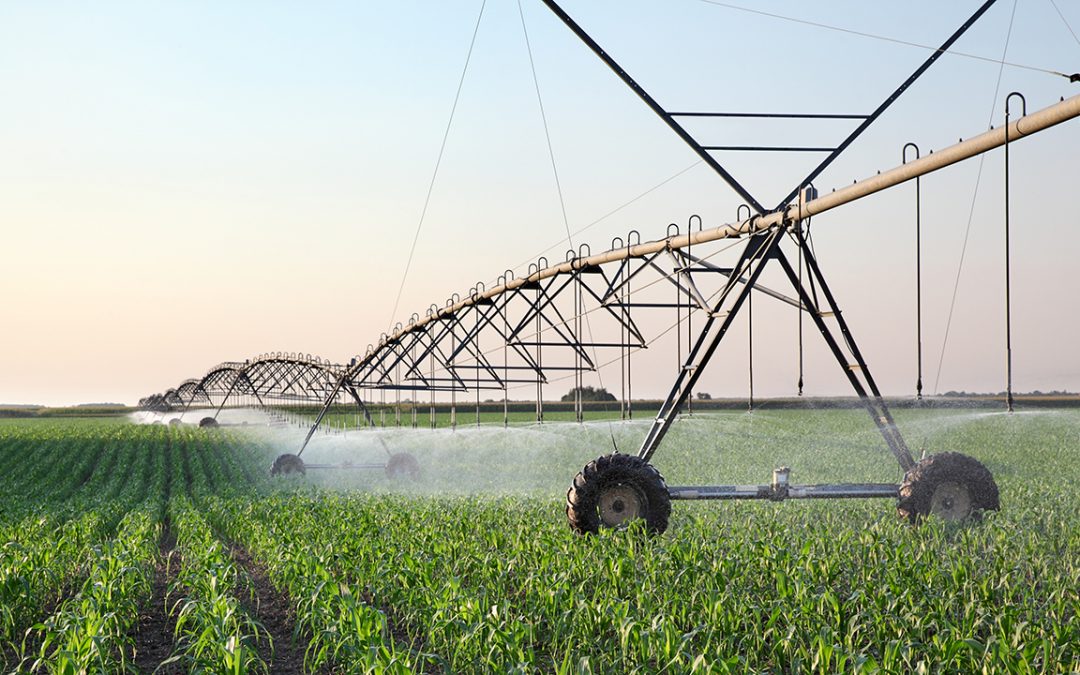With scientific research and discovery occurring at a dizzying rate, it’s difficult to imagine there are frontiers yet to be fully explored, but the microbiome is one. While microbiomes have always existed, little is known about their function in plants and animals.
“Microbiomes are communities of microorganisms—bacteria, fungi, viruses, archaea and protozoa—that inhabit an environment, including all plants and animals,” said Zachary Noel, an assistant professor in the Auburn University College of Agriculture’s Department of Entomology and Plant Pathology.
As a collective, microbial assemblages and their genomes have profound impacts on solutions related to agricultural production, human chronic diseases, and ecosystem stability, among others.
Noel, through collaborative research conducted through the Alabama Agricultural Experiment Station, is particularly interested in the role of microbiomes in agricultural production.
“The plant health issues growers face within agricultural ecosystems are complex and dynamic,” he said. “My research program aims to study how agricultural management influences microbial diversity and interactions to develop new strategies to promote plant growth and prevent plant diseases.
“I am particularly interested in studying fungal and oomycete interactions with bacteria at the seed or seedling stage of plant development. I am also interested in understanding how agricultural management systems alter the complexity and resiliency within microbial communities.”
The main focus of Noel’s lab is to study microbial diversity to enhance plant growth and fight pathogens. He is looking at which factors drive these microbes in agriculture and how they can be applied.
Much of this work is considered novel or new in the field of scientific agricultural research, he said, and it has led to two recent grant awards.
“The concept of the spermosphere microbiome project that was just funded was previously studied by a Cornell researcher largely before the age of massive sequencing, and he has since retired,” Noel said. “Since my lab specializes in pathogens that attack the spermosphere, we needed to study this more.”
The spermosphere, he explained, is the zone surrounding seeds fueled by nutrient-rich seed exudates where interactions between the soil, microbial communities and germinating seeds take place. The concept of the spermosphere is usually applied only during germination.
How microbes grow in the spermosphere can determine the life or death of the plant soon after sowing, making this area incredibly important for plant health, especially when seeds are a significant operating cost for farmers each year. Protecting seeds from pathogens saves farmers money by making them more efficient, ensuring every seed they put in the ground counts. Yet there is a knowledge gap from when a farmer plants a seed to when it emerges from the soil.
“We have a bias in our exploration of the plant microbiome because we do a lot of the sequencing post-emergence after it has emerged from the ground,” Noel said. “So we focus on these early stages of plant development. What happens when we stick a seed in the ground? Just hours after that happens, the creation of the spermosphere is incredibly important to the plant, but we know little about it.”
The spermosphere project is part of an $850,000 grant funded through the Agricultural Microbiomes in Plant Systems and Natural Resources program area of USDA-NIFA-AFRI.
Noel is acting as project director along with co-project directors Jeffrey Coleman, associate professor in the Department of Entomology & Plant Pathology, and Sharifa Crandall, assistant professor in Penn State University’s Plant Pathology and Environmental Microbiology Department.
The One Health Microbiome Center at Penn State University is one of the largest and most active organizations of its kind in the world.
“From an agricultural standpoint, there are plenty of beneficial microbes, and there are plenty of pathogens,” Noel said. “The most simplistic way to think of this is how do we balance in favor of the beneficial microbes versus the pathogens so that seeds emerge from the ground every time?”
The aim of the grant collaboration with Penn State is to better understand what happens from the moment a farmer puts a seed into the ground to when it emerges from the soil.
“We’re trying to understand if across different soils with inherently different starting microbial communities – are there a common set of microbes that go to the plant in a predictable manner,” Noel said. “Is there a common set of organisms that we can exploit? Can we manipulate the spermosphere, and can we put specific combinations of microbes on seeds that will help produce a healthier plant?”
Noel also is working on a $190,000 AFRI seed grant for his lab that focuses on utilizing yeast fungi found on almost every plant globally. However, it is not known if these fungi could be useful for agriculture or precisely what they are doing on leaves.
“Research has acknowledged that there are yeasts on the leaf surfaces, but it has never made clear what they’re doing or their function,” Noel said. “It’s a tremendous opportunity for agriculture. We isolated yeast from magnolia leaves at the Arboretum on campus and got four or five new fungal species. They’re unexplored at this point.”
The yeast may harbor important metabolites that can be used for agricultural purposes or industrial purposes, he said.
“They may produce very interesting, novel compounds,” Noel said. “Some may be plant growth promoting, so we’ll conduct several tests. We have a good collection, and we’ll be exploring their taxonomic novelty, some of their plant-growth-promoting characteristics and some of the metabolites they might produce.”
Another historic and significant aspect of this grant, he said, is that these fungi represent part of a continuation and new era of a plant-associated microbe collection begun by Professor Emeritus Joseph Kloepper.
“Auburn University has a tremendous resource for microbes due to the work of Joseph Kloepper,” Noel said. “Kloepper’s groundbreaking work in plant growth-promoting rhizobacteria resulted in bacterial libraries of strains from long-term crop rotations and other sources. It is now considered one of the richest such collections in the world.
“Our work is expanding on what Dr. Kloepper did. He has amassed a significant collection of growth-promoting rhizobacteria, and we’re taking it to the fungal world and beyond. We’re trying to figure out how these microbes interact and how they can be put together for specific purposes.”
The eventual goal, he said, will be commercialization and use on a large scale, such as with Kloepper’s work.
“There are several people from different departments at Auburn who are invested in Kloepper’s collection,” Noel said. “We are very proud to house this collection in our department and now want to build on an already great foundation with different microbes and new tactics.”





